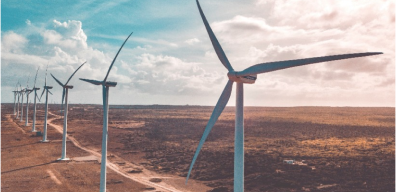Wind Energy Stocks vs. Wind Energy Funds
Wind Energy Stocks vs. Wind Energy Funds
Confused about investing directly in wind stocks compared to wind mutual funds and ETFs? We compare the pros and cons of each strategy.

As the world transitions towards cleaner and more sustainable energy sources, wind power has emerged as a promising and rapidly growing industry. Investors seeking to capitalize on this trend have two primary options: investing directly in individual wind energy stocks or opting for diversified wind energy mutual funds or exchange-traded funds (ETFs). Each approach carries its own set of pros and cons, and understanding these differences is crucial for making informed investment decisions.
Investing in Individual Wind Energy Stocks
Pros:
- Potential for Higher Returns: Investing directly in individual wind energy stocks allows you to tap into the potential upside of companies that are leading the way in wind power technology, project development, or turbine manufacturing. If you identify and invest in the right companies, the returns can be substantial.
- Greater Control: By selecting individual stocks, you have greater control over your investment portfolio. You can tailor your holdings to align with your risk tolerance, investment objectives, and personal preferences.
- Targeted Exposure: Direct stock investing enables you to focus your investments on specific sectors, companies, or technologies within the wind energy industry that you believe have the most promising growth prospects.
Cons:
- Higher Risk: Investing in individual stocks carries higher risk, as the fortunes of a single company can significantly impact your investment. Factors such as management decisions, regulatory changes, or market fluctuations can adversely affect a company's performance.
- Diversification Challenges: Building a well-diversified portfolio by investing in individual stocks can be challenging, especially for investors with limited capital. Lack of diversification can expose you to higher levels of risk.
- Extensive Research Required: Successful stock picking requires in-depth research, analysis, and a thorough understanding of the companies, their financials, and the industry dynamics. This can be time-consuming and may require specialized knowledge.
Investing in Wind Energy Mutual Funds or ETFs
Pros:
- Diversification: Wind energy mutual funds and ETFs provide instant diversification by holding a basket of wind energy stocks. This diversification can help mitigate the risks associated with investing in individual companies.
- Professional Management: Mutual funds are managed by professional fund managers who conduct extensive research and make investment decisions based on their expertise and analysis.
- Convenience: Investing in wind energy funds is relatively straightforward and convenient. You can gain exposure to the wind energy industry with a single investment, without the need for extensive research or stock-picking.
Cons:
- Lower Upside Potential: While funds offer diversification, they may also limit your upside potential compared to investing in individual high-performing wind energy stocks.
- Fees and Expenses: Mutual funds and ETFs typically charge management fees and other expenses, which can eat into your returns over time.
- Limited Control: When investing in funds, you have less control over the specific companies or sectors you are exposed to within the wind energy industry.
Ultimately, the choice between investing in individual wind energy stocks or wind energy funds depends on your investment objectives, risk tolerance, and level of expertise. For investors seeking higher potential returns and greater control, individual stock investing may be an appealing option, but it requires more time, effort, and risk management. Conversely, wind energy funds offer diversification, convenience, and professional management, which may be more suitable for investors seeking a more passive and broadly diversified approach to investing in the wind energy industry.
